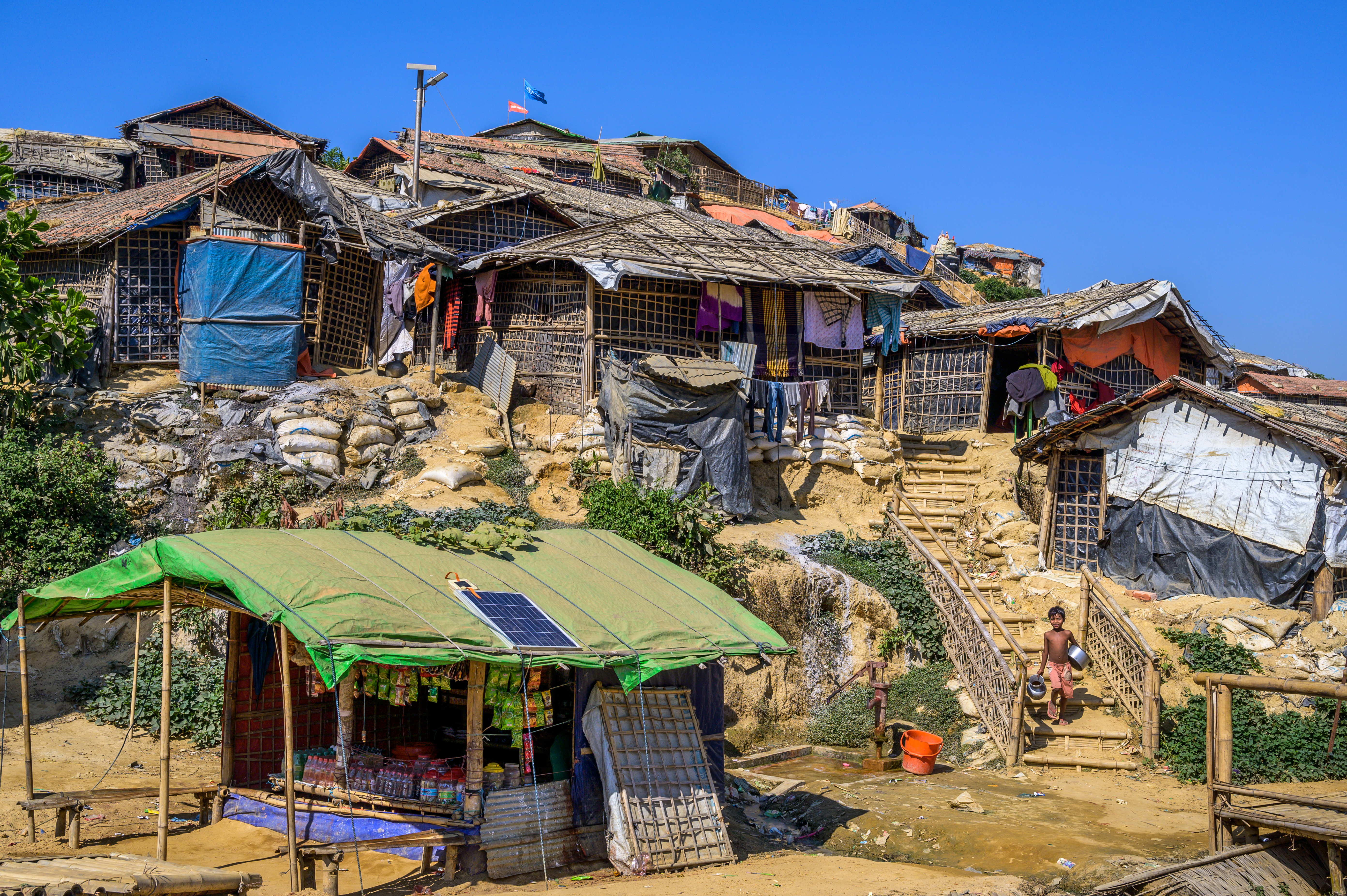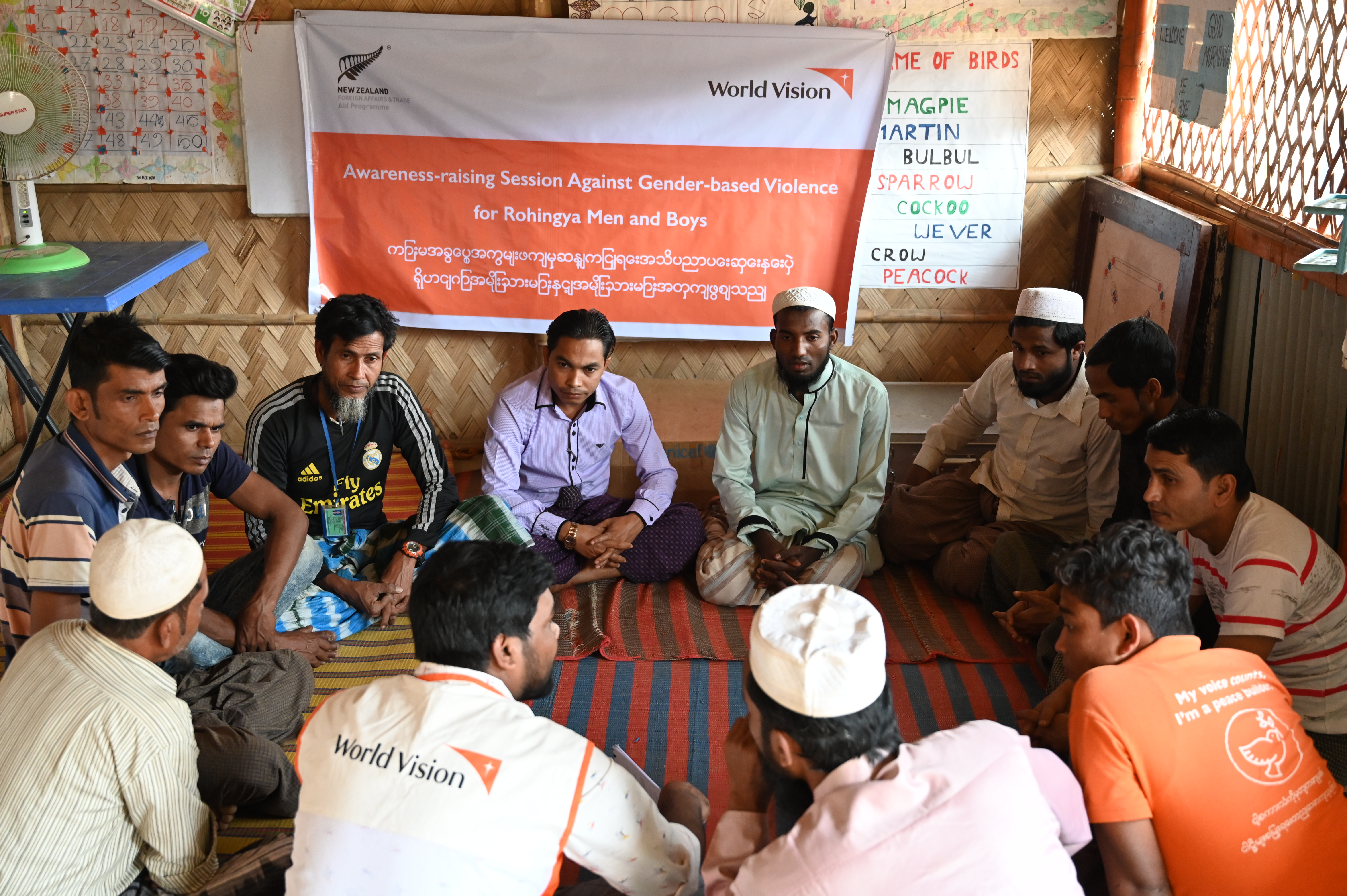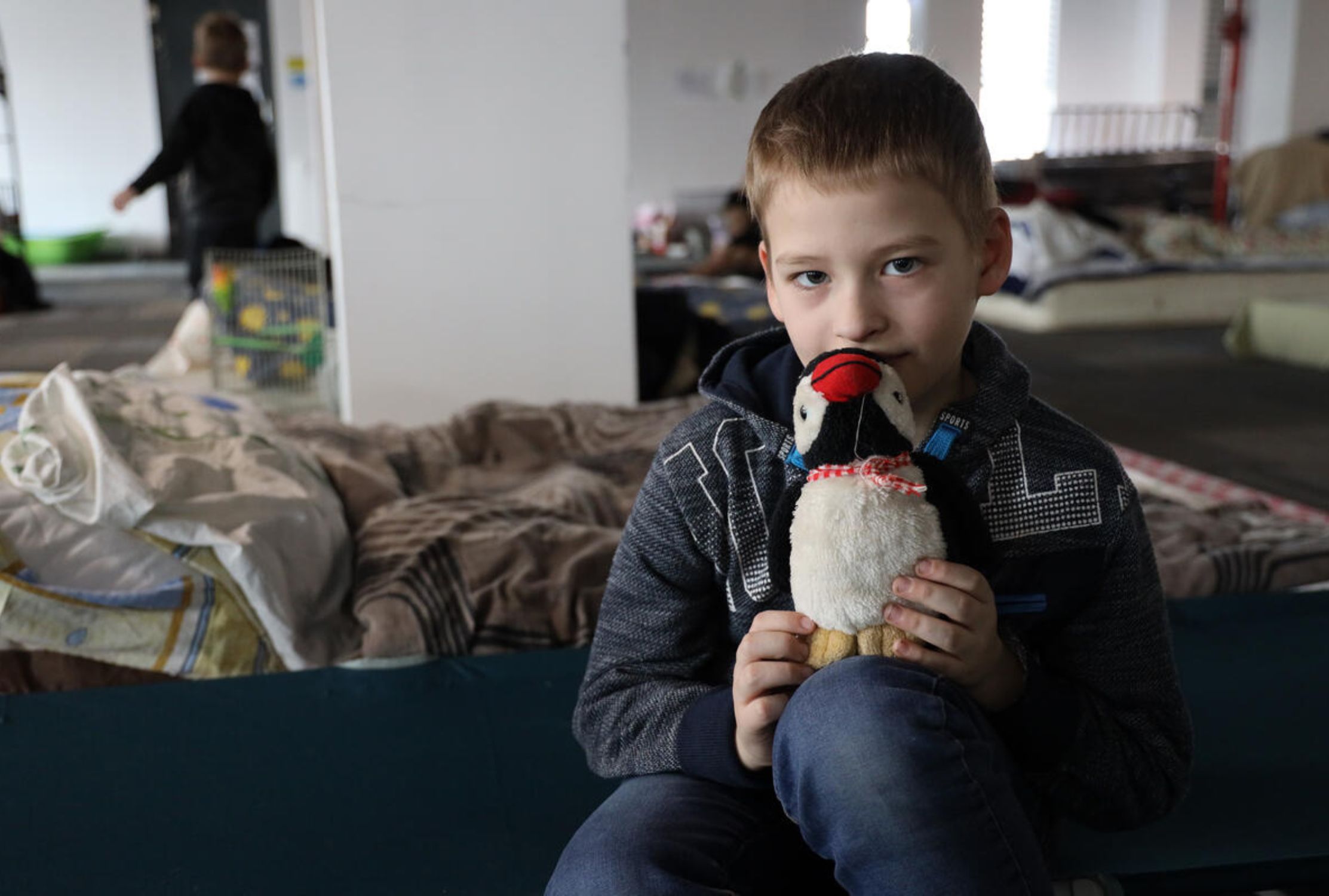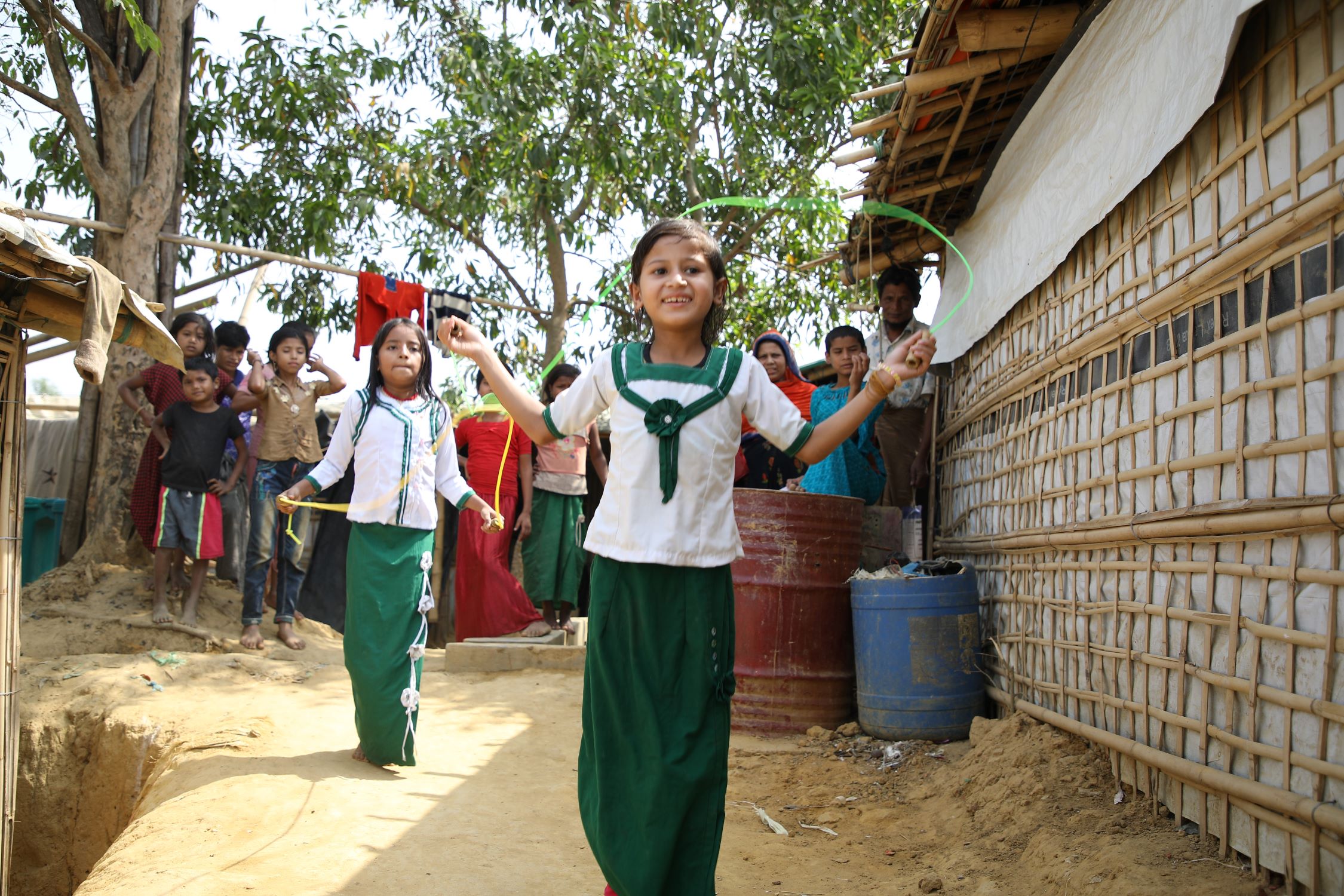
Myanmar Crisis explained: why they need our help
The country is in turmoil and three million people are in urgent need of help
Since September 2017, the Rohingya Refugee Crisis has affected Myanmar and neighbouring Bangladesh as families are forced to flee their homes. The Rohingya people, a mostly Muslim ethnic minority group in predominantly Buddhist Myanmar, are considered by their government to be illegal immigrants. Because of this, they are denied citizenship and live in fear of sexual violence or attack. Following an army crackdown in 2017, thousands of Rohingya were killed and more than 700,000 fled to Bangladesh – a large proportion of the roughly one million Rohingya total population.
Today, Rohingya refugees in Bangladesh live in crisis. In camps in Cox’s Bazar, Bangladesh, is the world’s largest refugee settlement, acting as a host community for those who have been displaced. However, this camp is densely populated, with well over half a million people still living here with little access to food, clean water or medical care. Although families here survived the violence in Myanmar, their battle hasn’t ended.
But they aren’t alone. World Vision is there too, providing emergency food, water sanitation and protection. By supporting us, you can support them.
Political unrest and clashes
It isn’t just ethnic minorities like the Rohingya Muslims who are facing violence in Myanmar. A recent military coup ended civilian rule and reimposed military rule in the country. On 1 February 2021, the Tatmadaw – Myanmar’s military – deposed the sitting Government – including State Counsellor Aung San Suu Kyi – and arrested them, declaring the results of the 2020 general election invalid.
Between February and August 2021, more than 210,000 people were displaced within Myanmar due to armed clashes and insecurity
Following the takeover, an opposing government, The National Unity Government, seeks to secure a return to civilian rule, while a resistance movement has also emerged. Clashes between the Myanmar military security forces and opponents are intensifying across the country, with frequent bomb blasts and explosions in major cities. Assassinations of suspected military informants are also on the rise. The situation has brought Myanmar to a standstill. The health, education, and banking systems have collapsed. A state of emergency has been declared.
1,000 civilians have been killed with a further 6,000 detained as the clashes continue.
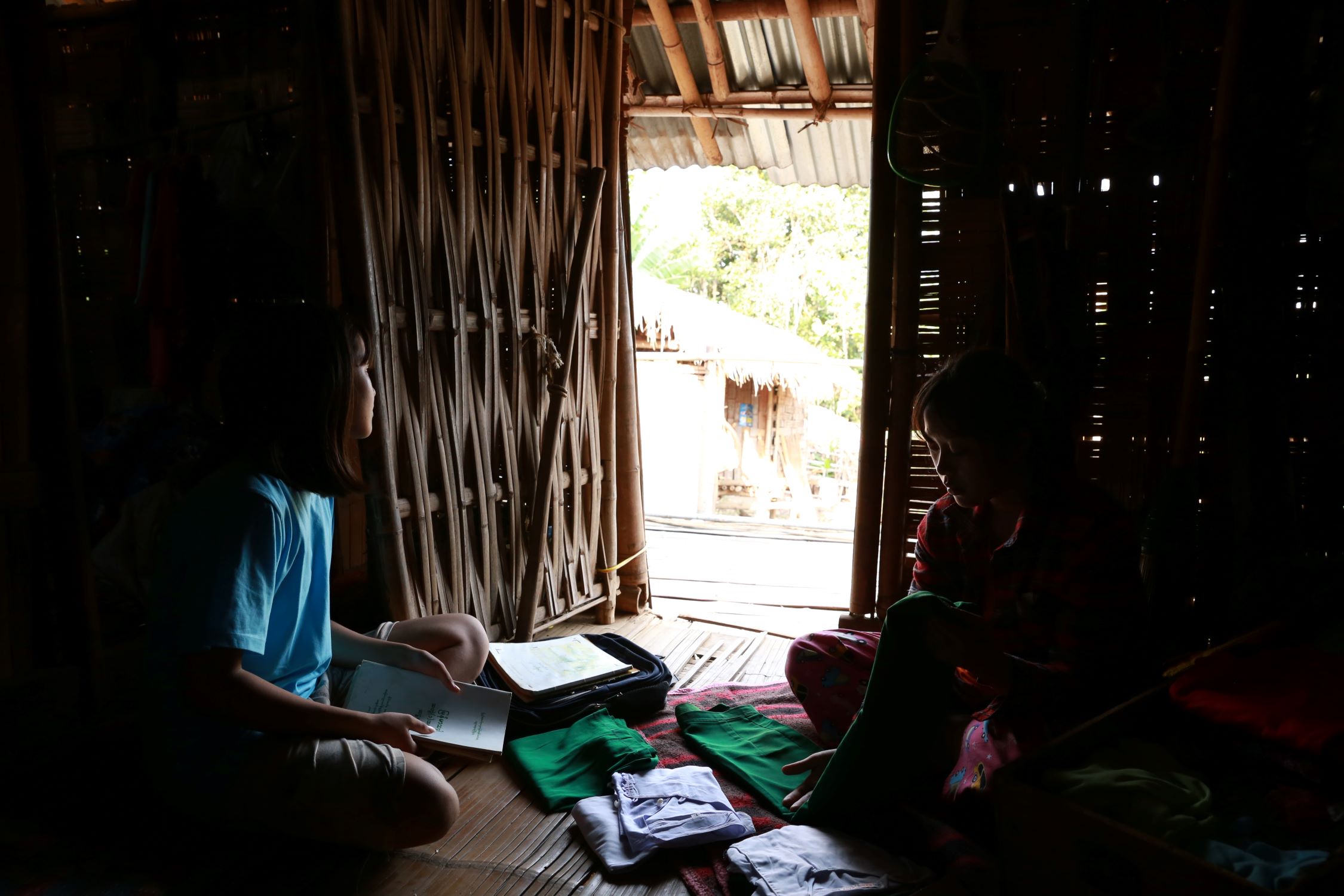
Hae (not her real name), 14, is one of World Vision’s sponsored children. She says: "Our school is currently closed and occupied as a security station. We don't dare to go to school because we might get injured while playing if there are any weapons left behind in the school. Two years ago, a schoolmate of mine found an old grenade near her house and it exploded while she was playing with it and she died. At night, because of law enforcement movement outside in our village, we cannot sleep well and some nights we can hear the sounds of artillery and mortar fire. We want to go back to the days when we were free and happy and went to school with our friends."
One of the most severely impacted sectors is the banking sector, which has resulted in cash shortages across the country. Despite these challenges, World Vision Myanmar was able to provide cash assistance to communities in need, including those in displacement camps. Cash is preferable to food since it provides a level of freedom of choice, helps to stimulate the local economy, and is more cost-effective compared to providing food.
Yin Mar Kala, 60, from Kachin State, is a widow whose 33-year-old son suffers from liver disease and is unable to work. She says: “With the cash assistance provided by World Vision monthly, I buy food for my family and it helps solve the need for our monthly food supply since we have no source of income. I’d like to thank World Vision for helping us in a difficult time like this.”
The pressure of COVID-19
And then there’s the pandemic. According to the World Health Organisation, there have been over 18,000 deaths from COVID-19 in Myanmar since it began. Even those of us who are fortunate enough to live in well-developed countries have felt the pressure that COVID-19 can add to any situation. Not only are people forced to deal with grief, but infrastructure is pushed to its limits and those living in vulnerable households are most likely to be affected.
World Vision Myanmar is responding to the crisis, hoping to reach over one million people, including 262,000 children, with life-saving goods and services such as food, crop kits, livestock, purified water, education kits, and sanitisers and masks, along with information on health education and homeschooling training.
Where possible World Vision Myanmar teams are working with local partners to provide emergency support.
Fact File
- 3 million people in need of humanitarian assistance
- 25 million people – half of the country’s population – risks falling into poverty by 2022
- 219,000 internally displaced people since 1 February 2021
- 22,000 estimated refugee movements to neighbouring countries since 1 February 2021
- 496,901 COVID-19 confirmed cases as of 28 October 2021
- 1,218 civilians have been killed, 7,026 detained and countless others injured or intimidated since 1 February 2021, as of 27 October 2021.
World Vision in Myanmar
Despite all these challenges, we have managed to find a way to engage with the community and serve the most vulnerable children. Although operations have slowed, we are still able to monitor the status of our sponsored children and provide support.
With our 22 trained child group leaders, child protection staff, and volunteers, local End violence against children awareness sessions were successfully conducted in 11 areas, reaching over 385 parents and caregivers and 680 children. Through the awareness sessions, we were able to help the children with psychosocial support during these politically unstable conditions and Covid.
Because of the current political situation, and Covid, most of the children and families are at home all the time and it has been even more crucial to raise awareness of violence against children in each village. As a result, we were able to see that parents started to use positive discipline instead of physical punishment on children.
The following is a report from one of our colleagues, detailing more of the challenges being faced on the ground in Myanmar:
“Our programme faced challenges in programme continuity and safety of staff members. Due to disruption in healthcare services, the township hospital and the rural health centre were shut down, leaving limited health services for the under-5s, pregnant women and others. The roadblocks, curfews, and fragile and sensitive environments in the targeted areas made our staff members feel terrified and insecure. The internet shut down caused banking systems to break down, which delayed our payments for suppliers and the rise of commodity prices affected our implementation costs. Moreover, safe access to the target areas and the most vulnerable households has been slowed.
“The community members are getting to know World Vision is still working for the most vulnerable children’s households despite all of the difficulties we face. We are planning to continue these awareness training sessions in 13 villages and three urban areas.
“Although we were able to achieve much during this difficult time, we are still not able to serve the community to the fullest potential as before. The most vulnerable children are at risk of forced labour, sexual exploitation, and domestic violence. The most vulnerable children’s households will face financial crisis if the situation is not settled soon. We hope that the best solution for this country would come quickly so we can continue serving the children to live their lives to the fullest.”
Despite all the challenges faced in Myanmar, and for World Vision staff, we are there, on the ground, helping the most vulnerable. Please join us in your support, financially and prayerfully.

